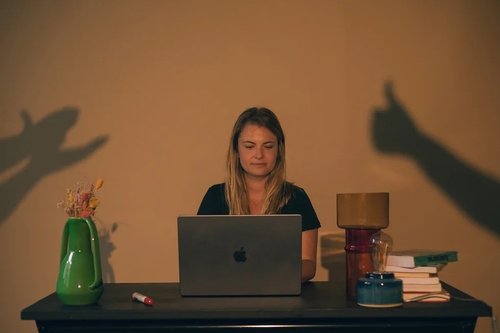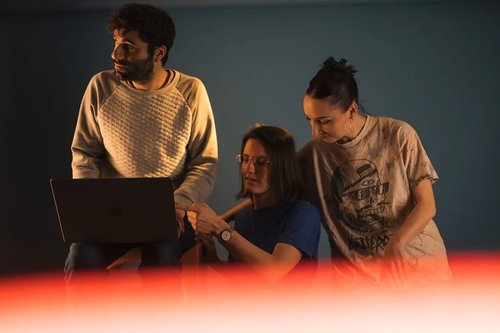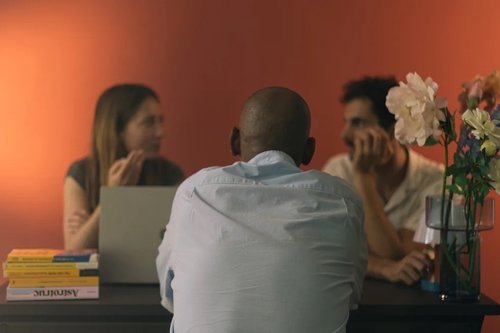How to defend your thesis...at a job interview
Oct 08, 2020
4 mins


Journalist
Whether you see your thesis as a work of art, a fabulous construction, or your precious baby, it will have taken a lot of effort to bring it to completion. It’s a major undertaking that involves a hard slog and heartache. Yet many graduates don’t even think to mention it in an interview. With the jobs market looking decidedly uncertain, it is wise to use everything in your armory to show that you have what it takes. But how do you bring it up?
That year at college is still a bit of a blur. In addition to attending lectures and studying, you spent months thinking, planning, and working on your dissertation. By the end of it, you had an impressive body of work and you knew your topic inside out. So why would you not mention it at a job interview?
Many graduates don’t exploit this rich seam of experience, but they really should, according to Neil Ewington, the founder of Career Coaching Consultancy in London, who has experience as a recruiter in the tech, media, and banking sectors. “It’s probably the biggest project you have ever had to do,” he said. “It requires a lot of skill.”
Make sure it is relevant
The key to making use of this experience is to keep it relevant. “Don’t just sit down and go, ‘Hey, by the way, this is what I did’,” said Ewington. If the topic that you wrote about is pertinent, feel free to bring it up. So, for example, if you are going for a post in the restaurant industry and your dissertation was about food allergens, it is a good idea to mention that and what you learned from your research.
If your topic was something that might be seen as contentious, steer clear of mentioning the research and talk about your methods instead. “I would avoid talking about the subject matter of your thesis if it could be deemed controversial,” said Ewington. “It is often best to stay away from religion and politics—especially if your conclusion was controversial. You don’t know who is sitting across from you when it comes to their beliefs or their views.”
What key competencies can you show?
Regardless of the topic of your dissertation, the skills, behaviors, or competencies that helped you to complete the project are ones that can help you to impress a potential employer. Decide which ones to highlight by looking at what requirements or desirable attributes are mentioned in the advertisement for the job. “The important thing to remember with all job interviews is that companies don’t care about what you have done, they care about what problem or challenge you can solve for them,” said Ewington. “The very act of completing a thesis allows you a lot of opportunities to show you have those basic competencies.”
A recent advertisement for the post of digital marketing assistant sought a candidate who could collate, analyze and interpret information. Those are all skills used in creating a thesis. Other skills you might have after all those months of investigation include conducting research, deciding what information not to include, and writing up the content. Rather than speaking in generalities at the interview, however, you need to give clear examples. To help you to formulate your answers, Ewington advises using the Star interview method, an acronym for situation, task, action, and result. “Take your time on this. You need to think of real examples you can talk about in the interview. This method will help you to structure them,” he said.
How to use the Star method
It can be too easy to ramble during an interview, especially if you are nervous, so the Star method can help you to stay focused on the essential information. “The Star technique helps when you’re explaining any sort of situation in your past, anything that you’ve done that’s relevant to the competency,” he said. The interviewer may say, “Give me an example of a time when you have faced a challenge?” or “Can you tell us about your communication skills?” If you have read the advertisement carefully, you will have your answers prepared.
Follow these four steps:
You need to go through this method for each competency or soft skill, such as critical thinking or problem-solving. If you want to give an example of your communication skills you can develop your response like this:
- Situation: Set the scene, making sure to add context and background information. “For my degree in journalism, I had to prepare a 10,000-word thesis on methods of community policing and how well they worked.”
- Task: Explain the issue you had to overcome or what you needed to achieve. “The challenge was to get a variety of voices from members of the police, academics, lobby groups, and people in the community.”
- Action: Look at how you tackled the problem. What did you do? “I drew up a list of potential interviewees, then made initial contact by social media, telephone, and email. I discussed the project with them and then decided who to interview.”
- Result: What was the outcome? Give details as to what happened as a result of your actions, if possible with figures. “The finished thesis featured 50 interviewees and included a wide variety of voices showing different viewpoints on the issue.”
Consider what skills you used in producing your dissertation, then go through this method for each one until you can mention them succinctly. Keep it brief and you will be able to cover more ground in your interview.
One of the biggest problems for job seekers early in their careers is that they don’t know how to speak about their achievements, such as completing a dissertation, according to Ewington. “You’re not going to get marked down if you don’t mention your thesis at an interview, but you put so much effort into it, you really should,” he said.
Photo: Welcome to the Jungle
Follow Welcome to the Jungle on Facebook, LinkedIn, and Instagram, and subscribe to our newsletter to get our latest articles every day!

More inspiration: Ace your job interview

Why are you leaving your job? Here's how to nail the answer
Caught off guard by 'Why are you leaving your job?' Here's how to flip this tricky question into a spotlight on your goals and potential.
Dec 24, 2024

Standing out in an interview: Creative responses to common questions
Answering common interviews with common responses isn't going to get you far in today's job market. Here's how to truly stand out!
Nov 26, 2024

The Pratfall Effect: Can screwing up in a job interview make you more likable?
Mistakes you make in a job interview could actually work to your advantage ...
Oct 14, 2024

How to bring up your long-term career goals in an interview
Be honest but strategic. The key is aligning your goals with the role while showing flexibility and ambition. Avoid faking it!
Sep 24, 2024

Is honesty the key to discussing your weaknesses?
Are your weaknesses holding you back in an interview? A bit of honesty can flip the script and make your flaws work in your favor.
Aug 21, 2024
The newsletter that does the job
Want to keep up with the latest articles? Twice a week you can receive stories, jobs, and tips in your inbox.

Looking for your next job?
Over 200,000 people have found a job with Welcome to the Jungle.
Explore jobs